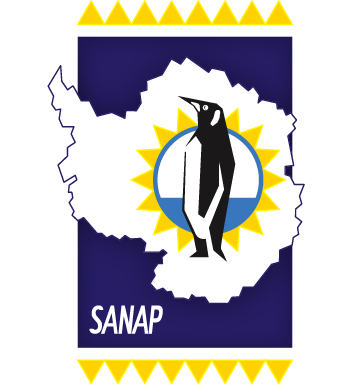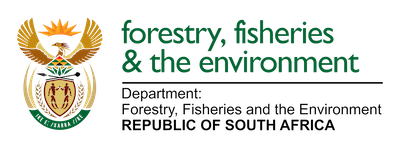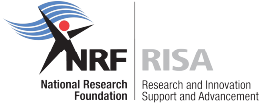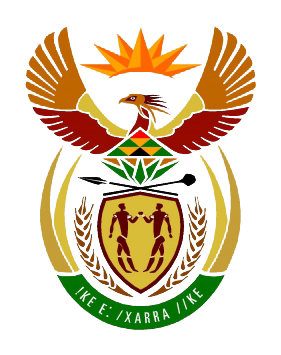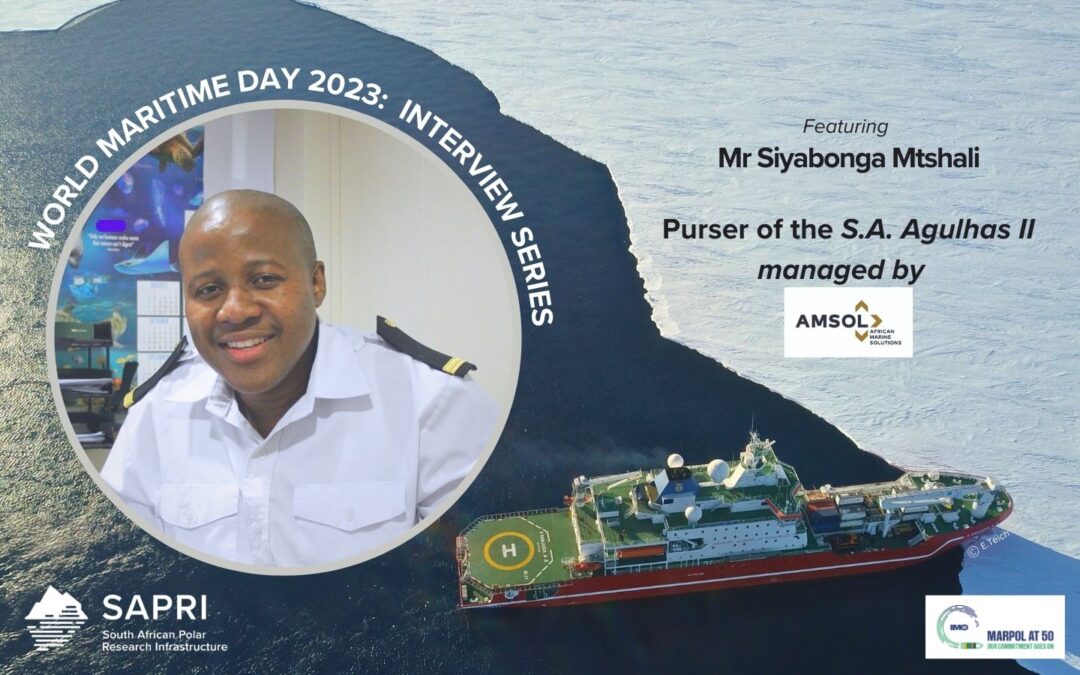
by Rabia Mathakutha | Sep 25, 2023 | Antarctica, Commemorative Days, Environment, International Days, SA Agulhas II, SA Polar Infratsructure, SA Polar Research Infrastructure, SANAP, SAPolarRI, SAPRI, Uncategorised
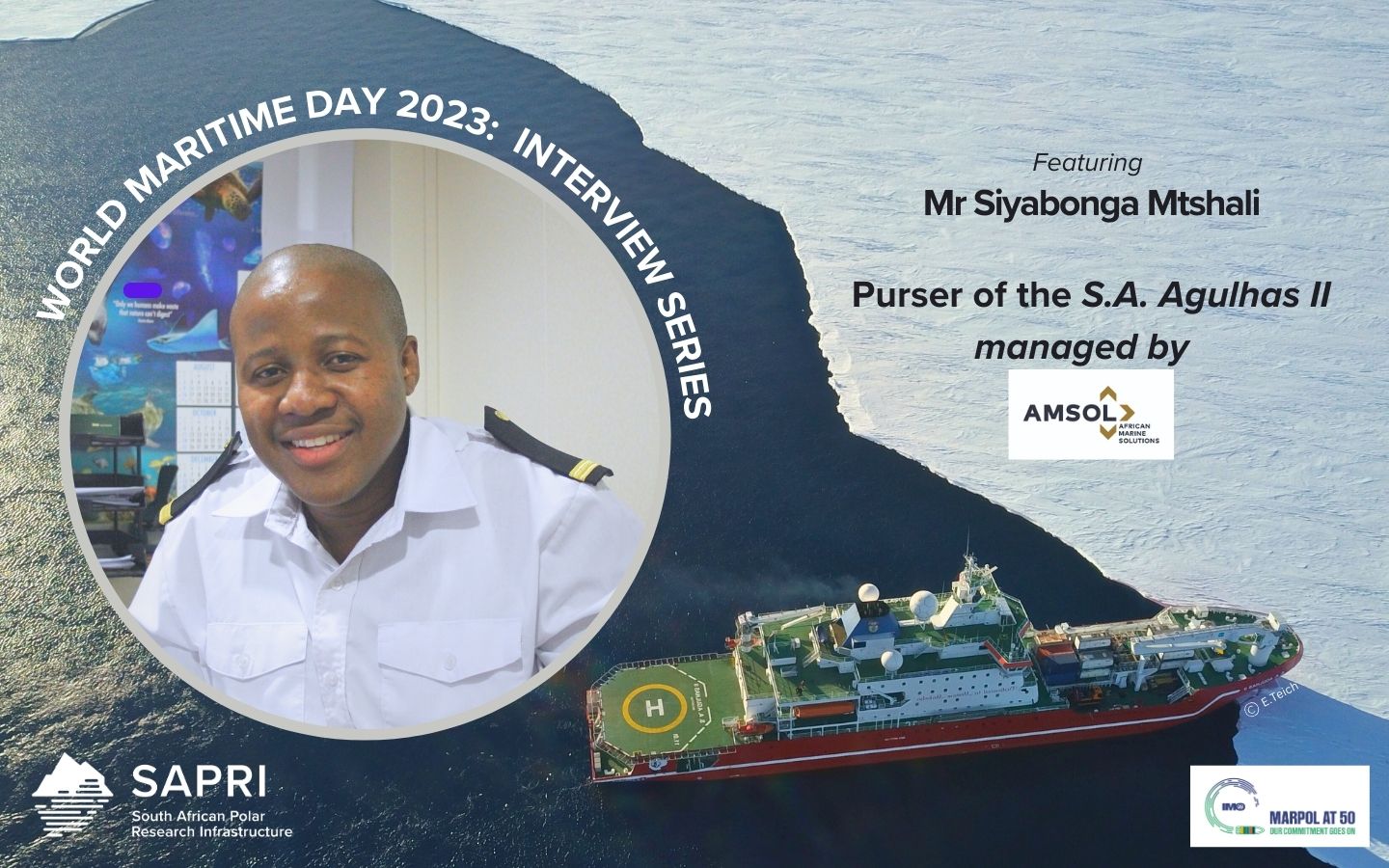
Only three days left before World Maritime Day 2023, which is celebrated every year on the last Thursday of September. This international observance aims to highlight the crucial role that shipping and seafaring play in our global economy and emphasise the importance of sustainable maritime practices.
The Maritime Interview Series Part 4 features Mr Siyabonga Mtshali, Purser and Head of the Catering Department on the S.A. Agulhas II.
What is the role of a Purser on the ship?
A purser is the officer principally responsible for the handling of money on board. Responsibilities include overseeing all administrative duties and ship supplies such as food and drink, and clothing and bedding; to this, the Purser is also referred to as the Head of the Catering Department.
Mr Mtshali’s Background and Journey into a Seafarer Career
Mr Mtshali hales from KwaDukuza-Stanger, in KwaZulu-Natal, and recently joined the S.A. Agulhas II with the vessel managing agent, African Marine Solutions (AMSOL). Mr Mtshali obtained his National Diploma in Maritime Studies (now referred to as Nautical Studies) from the Durban University of Technology (DUT), including in-service training with AMSOL, qualifying him as a maritime officer. The requirements for working as a seafarer include completing several short courses related to health and safety to fulfil the “Standards of Training and Certification of Watchkeeping” (STCW), as determined by the International Maritime Organisation (IMO). The STCW Basic Safety Training course is mandated by all flag states for all working seafarers. It is the international standard of nearly every leading flag state in the world. After completing these courses, Mr Mtshali became SAMSA (South African Maritime Safety Authority) accredited. Mr Mtshali’s experience as a seafarer includes working as a Third Officer on the S. A. AMANDLA (IMO: 7385215), which is a Tug vessel that was built in 1976 and is sailing under the flag of South Africa.
What do you like the most about your job?
Mr Mtshali said he enjoys working with people; which is one of the essential roles of a Purser. He has been described as friendly and approachable by the passengers.
Any advice to someone who would like to pursue this career?
“Make sure that it’s something you have a passion for, because passion goes a long way, even through the challenging times when you are at sea away from loved ones.”
World Maritime Day reminds us of the vital role that the maritime industry plays in our interconnected world. The maritime industry is also particularly crucial in enabling the science and research in the Antarctic region and Southern Ocean through SANAP.
Photo Credit: Rabia Mathakutha (South African Polar Research Infrastructure) and Eduan Teich via the Antarctic Legacy of South Africa (ALSA) Archive.
Written by: Rabia Mathakutha, South African Polar Research Infrastructure, 25 September 2023
Edited by: Anche Louw (South African Polar Research Infrastructure) and Ria Olivier (Antarctic Legacy of South Africa)
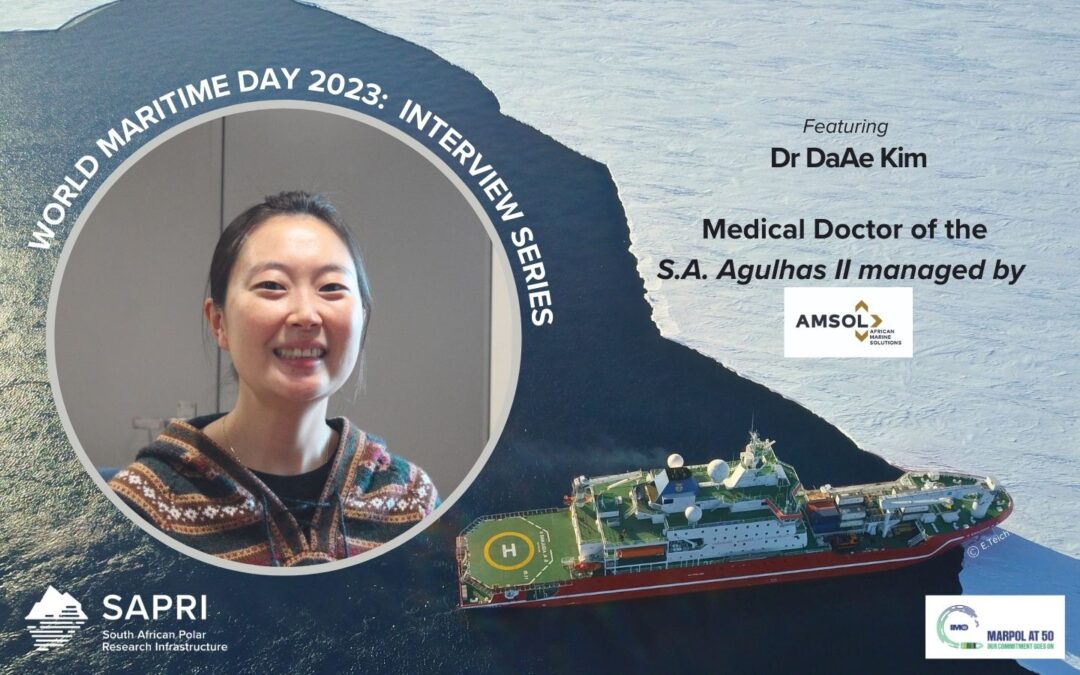
by Rabia Mathakutha | Sep 22, 2023 | Antarctica, Commemorative Days, Environment, International Days, SA Agulhas II, SA Polar Infratsructure, SA Polar Research Infrastructure, SANAP, SAPolarRI, SAPRI, Uncategorised, Women in Science
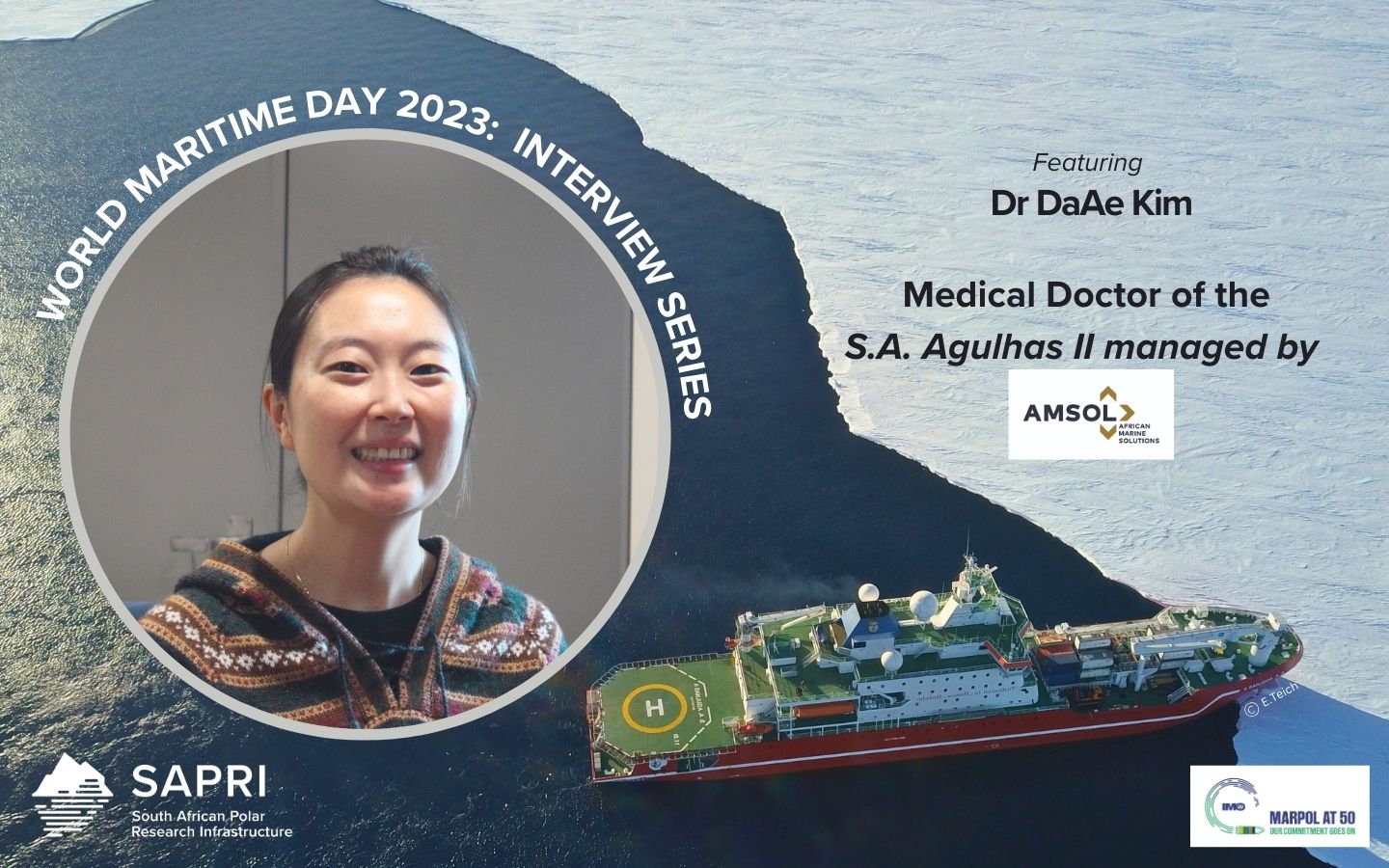
The Maritime Interview Series Part 3 features Dr DaAe Kim, Medical Doctor for the SEAmester VI expedition on board the S.A. Agulhas II.
A doctor on a research and supply vessel serves as a vital component in ensuring the health and well-being of all passengers, including the crew members, providing medical assistance in remote and challenging environments. The doctor’s expertise in diagnosing and treating illnesses, injuries, and emergencies is essential for the safety and success of the entire expedition.
Interview with Dr DaAe Kim
What is your background and what type of training did you receive?
“During my time ashore, I am stationed in Cape Town, where I work in a private emergency department. I like to describe myself as a general practitioner (GP) with a background in emergency and trauma training and experience. I obtained my medical degree from the esteemed School of Medicine at the University of Pretoria. Following that, I completed my comm-serve training in Pietermaritzburg, KwaZulu-Natal, and further enhanced my medical expertise by obtaining various medical certificates, including ACLS (Advanced Cardiac Life Support), PALS (Pediatric Advanced Life Support), ATLS (Advanced Trauma Life Support), BSS (Surgical Skills), and Ultrasound. These qualifications have solidified my role as a dedicated and qualified medical doctor”.
What do you like the most about your job?
Dr. Kim expressed her deep appreciation for the remarkable experiences that being part of a research expedition offers. She spoke passionately about the opportunity to explore extraordinary environments that would have otherwise been inaccessible to her. Dr. Kim specifically recounted her recent voyage to the sub-Antarctic Marion Island, where she was captivated by the diverse fauna, flora, and breathtaking landscapes. Her enthusiasm for these unique encounters highlights the profound impact that her work has on her personal and professional growth.
What are some of the challenges that you experience when working at sea?
“Enduring extended periods of separation from loved ones, disruptions to daily routines, and the absence of outdoor activities are some of the challenges I face while being away at sea. As an avid hiker, it is particularly disheartening that I am unable to indulge in one of my favorite pastimes while on board”.
How does working as a doctor on land compare to working as a doctor at sea?
“Working on a research vessel like the S.A. Agulhas II provides a favorable environment for me to fulfill my duties as a doctor. The advantage of having a controlled group of individuals who undergo thorough medical screenings before embarking on a voyage significantly reduces the likelihood of medical complications. Additionally, the vessel’s prioritization of medical resources ensures that we have immediate access to the necessary equipment and supplies, as there are no alternative options available at sea. This setting allows me to focus on providing efficient and effective medical care to the crew members, contributing to the overall success and safety of the expedition”.
Any advice to someone who would like to pursue this career?
“Seize the opportunity to gain valuable experience, explore your preferences, and embark on a journey of endless travel!”
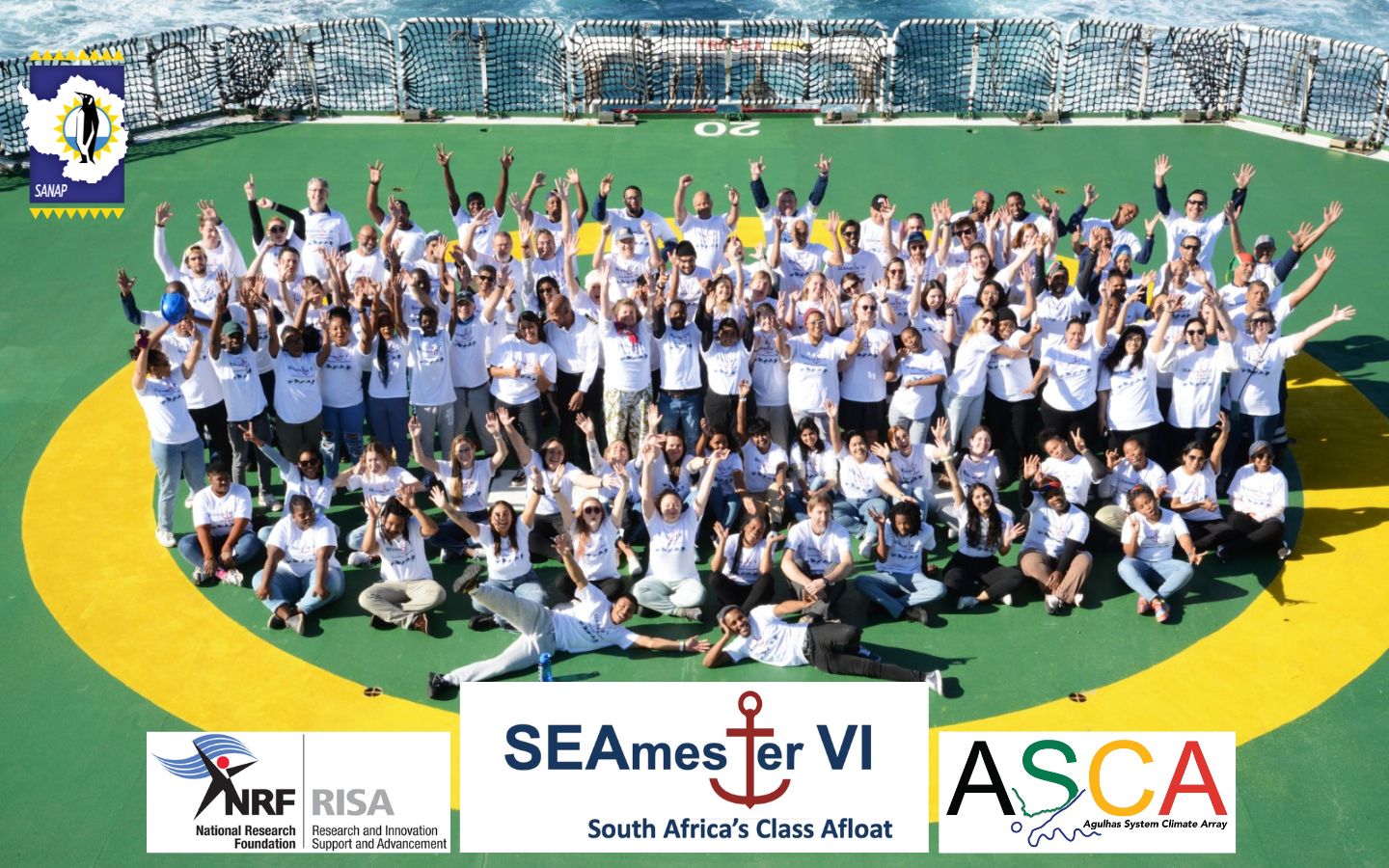
The SEAmester VI expedition took place between 19 and 29 June 2023. Read more here.
Mark your calendars for September 25th, 2023, as we proudly present Part 4 of The Maritime Interview Series, showcasing the remarkable Mr. Siyabonga Mtshali. As the esteemed Purser and head of the catering department on the S.A. Agulhas II.
Photo Credit: Rabia Mathakutha (South African Polar Research Infrastructure) and Eduan Teich via the Antarctic Legacy of South Africa (ALSA) Archive.
Written by: Rabia Mathakutha, South African Polar Research Infrastructure, 22 September 2023
Edited by: Anche Louw (South African Polar Research Infrastructure) and Ria Olivier (Antarctic Legacy of South Africa)
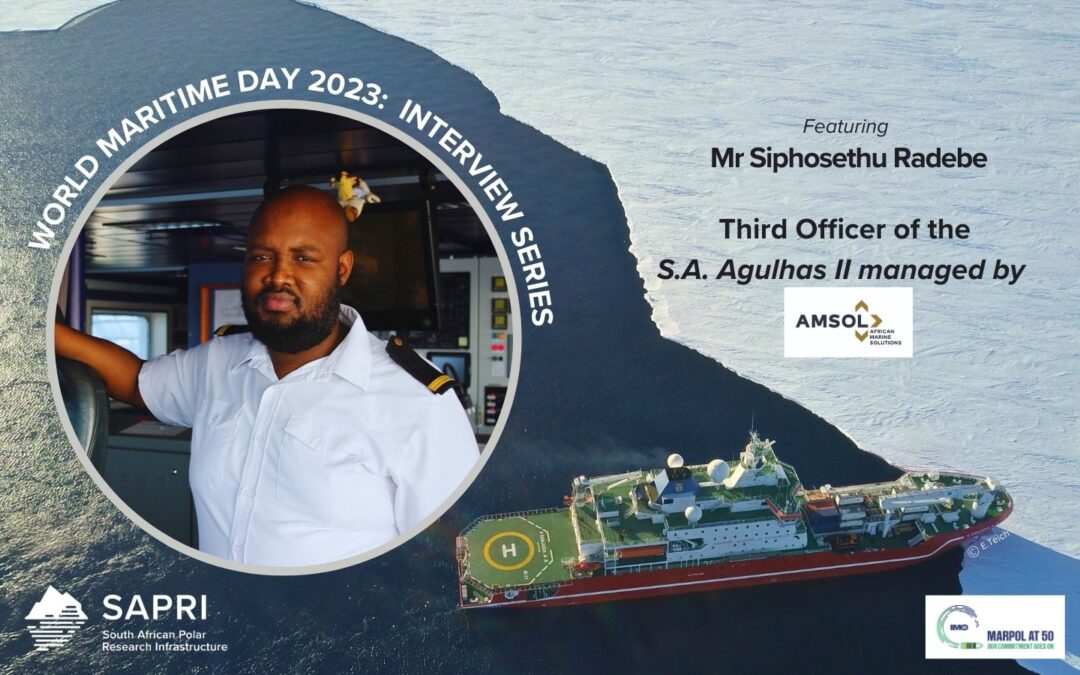
by Rabia Mathakutha | Sep 21, 2023 | Antarctica, Commemorative Days, Environment, International Days, SA Agulhas II, SA Polar Infratsructure, SA Polar Research Infrastructure, SANAP, SAPolarRI, SAPRI, Uncategorised
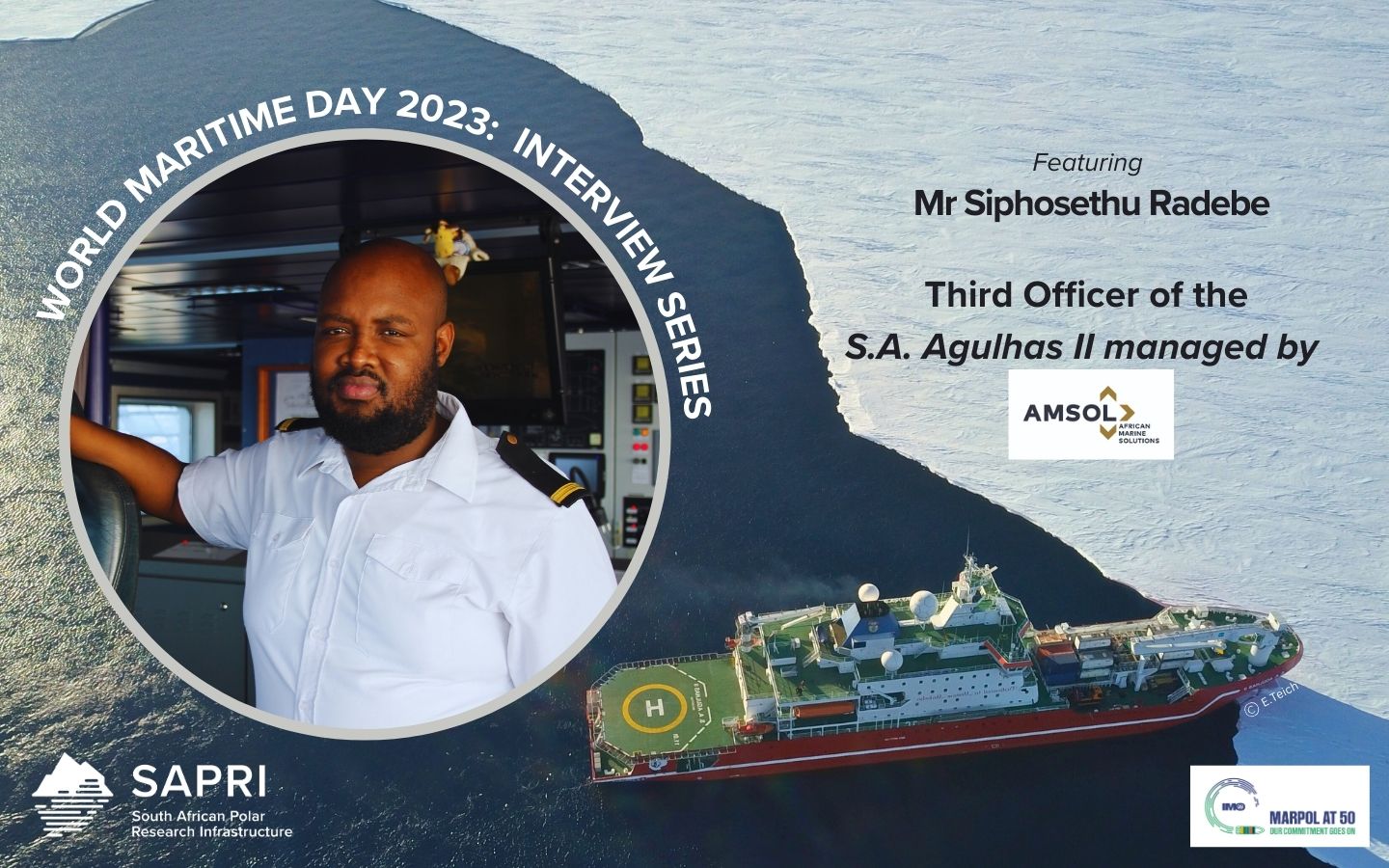
The Maritime Interview Series, leading up to World Maritime Day on September 28, 2023, aims to better acquaint us with and honour the seafarers on board the S.A. Agulhas II.
Did you miss Part 1? Click here.
The maritime industry connects countries, facilitates economic growth, enables scientific and research expeditions and plays a vital role in our everyday lives. However, the success of this enormous industry would not be possible without the men and women who sacrifice their time on land to serve our maritime needs.
The Maritime Interview Series Part 2 features Mr Siphosethu Radebe, Third Officer of the S.A. Agulhas II.
What does the Third Officer do on the ship?
The Third Officer, also referred to as the Third Mate, holds the position of a certified Officer In Charge of Navigational Watch (OICNW) and serves as an officer under the Second Mate. The Third Officer’s role encompasses a range of crucial duties, from navigational supervision to safety inspections and crew training. When assuming the navigational watch, as the Third Officer, I take charge of the bridge team, oversee the vessel’s maneuvering to maintain safety and course accuracy. The primary responsibility of the Third Officer revolves around ensuring safety on board. This includes conducting thorough inspections of gear lockers, lifeboats, and all equipment, verifying their proper functioning and adherence to safety standards, and overseeing emergency drills. Additionally, as the Third Officer, I play a pivotal role in directing line handlers, supervising cargo watches, managing anchor details, and providing training and guidance to crew members.
Mr Radebe’s Background and Journey into a Seafarer Career
I hale from Durban, KwaZulu-Natal and recently joined the S.A. Agulhas II with the vessel managing agent, African Marine Solutions (AMSOL). I obtained my National Diploma in Nautical Studies (previously referred to as Maritime Studies) from the Durban University of Technology (DUT), including in-service training with AMSOL, qualifying me as a maritime officer. I’m a SAMSA (South African Maritime Safety Authority) accredited officer after completing several short courses related to health and safety as part of the “Standards of Training and Certification of Watchkeeping” (STCW), as determined by the IMO. My experience as a seafarer extends beyond working on the S.A. Agulhas II, and includes experience on the vessel NOMASA (a Tug that was built in 2006, sailing under the flag of South Africa along the African west coast) and the Fire Fighting Vessel SIYANDA (built in 2010, also sailing under the flag of South Africa). My training included shadowing the First Officer on the S.A. Agulhas II.
What are some of the challenges that you experience in your line of work?
The long working hours and being away from home are challenging. However, this is often compensated by the decent break we receive after finishing a voyage, usually equating to approximately two months at sea and two months at home.
Any advice to someone who would like to pursue this career?
My best advice to anyone interested in pursuing a career in maritime is to work hard in school and be a top archiver, especially in the STEM disciplines (Science, Technology, Engineering, and Mathematics).
Part 3 will be shared on 22 September 2023.
Photo Credit: Rabia Mathakutha (South African Polar Research Infrastructure) and Eduan Teich via the Antarctic Legacy of South Africa (ALSA) Archive.
Written by: Rabia Mathakutha, South African Polar Research Infrastructure, 21 September 2023
Edited by: Anche Louw (South African Polar Research Infrastructure) and Ria Olivier (Antarctic Legacy of South Africa)
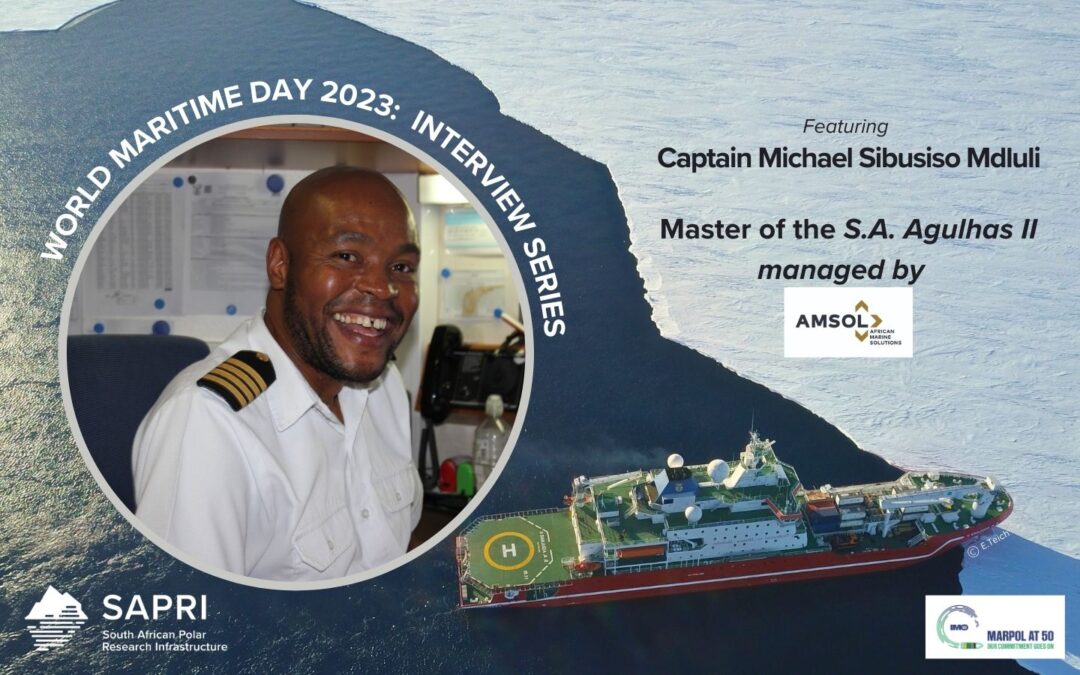
by Rabia Mathakutha | Sep 20, 2023 | Antarctica, Commemorative Days, Environment, International Days, SA Agulhas II, SA Polar Infratsructure, SA Polar Research Infrastructure, SANAP, SAPolarRI, SAPRI, Uncategorised
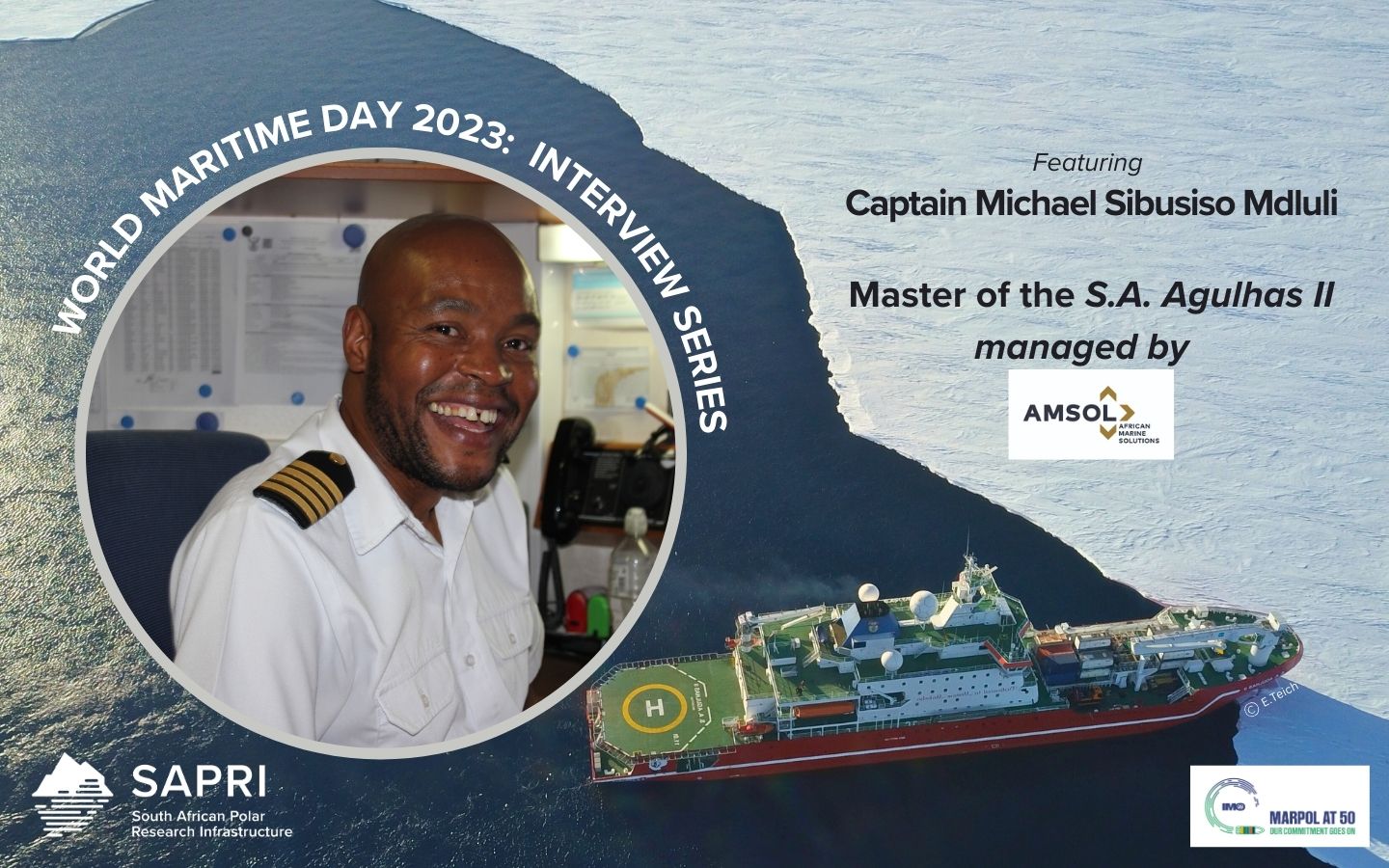
Leading up to World Maritime Day 2023
Every year on the last Thursday of September, nations around the world come together to celebrate World Maritime Day. This international observance aims to highlight the crucial role that shipping and seafaring play in our global economy and emphasise the importance of sustainable maritime practices. World Maritime Day provides an opportunity to raise awareness about the challenges faced by the maritime industry and to promote international cooperation in addressing them.
According to the International Maritime Organisation (IMO), This year’s World Maritime theme is “MARPOL at 50 – Our commitment goes on”. The theme spotlights the International Convention for the Prevention of Pollution from Ships (MARPOL), which covers the prevention of pollution of the marine environment by ships from operational or accidental causes.
Acknowledging the Role of South African Seafarers in the Maritime Industry
The maritime industry is the backbone of global trade. This industry connects countries, facilitates economic growth, enables scientific and research expeditions and plays a vital role in our everyday lives. However, the success of this enormous industry would not be possible without the men and women who sacrifice their time on land to serve our maritime needs. In recognising this, the South African National Antarctic Programme (SANAP) and the South African Polar Research Infrastructure (SAPRI), would like to honour some of our local seafarers working on board the South African research and supply vessel, the S.A. Agulhas II during various marine and Antarctic research related expeditions through the Southern, Indian and Atlantic Oceans. We would like to honour these seafarers in The Maritime Interview Series, leading up to World Maritime Day, on Thursday, 28 September 2023.
The Maritime Interview Series Part 1 features Captain Michael Sibusiso Mdluli, Master of the S.A. Agulhas II.
What is the Captain’s role on the ship?
“As the captain (also known as the Master), I hold the highest-ranking position on the vessel and I’m responsible for various critical tasks. I oversee the navigation, operations and safety of the S.A. Agulhas II, including managing and leading the crew. I have to ensure compliance with regulations and laws, oversee the vessel maintenance and administration, and handle commercial and legal responsibilities. My primary focus is thus on maintaining the safety, efficiency, and overall well-being of the vessel, crew, and cargo throughout its operations”.
Captain Mdluli’s Background and Journey into a Seafarer Career
Captain Mdluli grew up in a small village of Kwathunyana, which is 50 km south of Durban, and currently resides in Kloof, Durban. From humble beginnings as a Third Officer to obtaining the internationally recognised Master’s Certificate of Competency (Unlimited) in 2012, Captain Mdluli has been a seafarer for over 20 years. He has worked as a Master on several cargo vessels before joining the S.A. Agulhas II in 2016, and maintains that his experience on a research vessel such as the S.A. Agulhas II is both challenging and enjoyable. Some of the new and exciting experiences he mentioned about commanding the S.A. Agulhas II were learning how to navigate sea ice, a critical role during SANAE IV expeditions to Antarctica, as well as working with and learning from the scientists and researchers aboard the S.A. Agulhas II during research expeditions.
Captain Mdluli holds a Master’s Certificate of Competency (Unlimited), which makes him qualified to command a vessel of any size in the world’s oceans.
What do you like the most about your job?
“I enjoy travelling, seeing new places, meeting and interacting with different people, and learning from others. I also enjoy sharing my knowledge with others and empowering and inspiring the youth of South Africa”. To this, Captain Mdluli spoke about his involvement in school outreach programmes, where he visits local high schools in KwaZulu-Natal to share his knowledge and experiences as a seafarer.
What are some of the challenges that you experience in your line of work?
“Being away from loved ones and sometimes the long working hours that come with being a captain and overseeing everything and everyone”. He mentioned that he often has to be the last man standing. Captain Mdluli expressed that as much as he enjoys working with people and sees the crew as part of his family and always strives to get to know his crew on a personal level, this also comes with the challenge of dealing with individual personal matters that he is not always equipped to. However, he mentioned that the vessel managing agent, African Marine Solutions (AMSOL), offers counselling for their staff, which helps provide support during long voyages at sea.
Away from home: See the S.A. Agulhas II voyage schedule here.
Advice from Captain Mdluli:
“The best advice I would give to anyone interested in pursuing a career in maritime or wants to become a ship captain one day, is to choose STEM subjects at school (i.e., Science, Technology, Engineering, and Mathematics). Furthermore, to work at sea, you must have a positive mindset and show resilience, and most importantly, you must have a passion for it. Therefore, when looking to pursue any career, talk to the people who’ve been there or doing something related, to find out if it’s right for you”.
World Maritime Day reminds us of the vital role that the maritime industry plays in our interconnected world. The maritime industry is also particularly crucial in enabling the science and research in the Antarctic region and Southern Ocean through SANAP. SANAP recognises the global and national importance of safeguarding the environment of the Antarctic and Southern Ocean and protecting the integrity of ecosystems, both marine and terrestrial, in the region.
As we navigate towards a more sustainable future, let us recognise the invaluable efforts of seafarers who continue to navigate the world’s oceans, connecting nations, and powering global trade, science and research.
Photo Credit: Rabia Mathakutha (South African Polar Research Infrastructure) and Eduan Teich via the Antarctic Legacy of South Africa (ALSA) Archive.
Written by: Rabia Mathakutha, South African Polar Research Infrastructure, 20 September 2023
Edited by: Anche Louw, South African Polar Research Infrastructure and Ria Olivier, Antarctic Legacy of South Africa
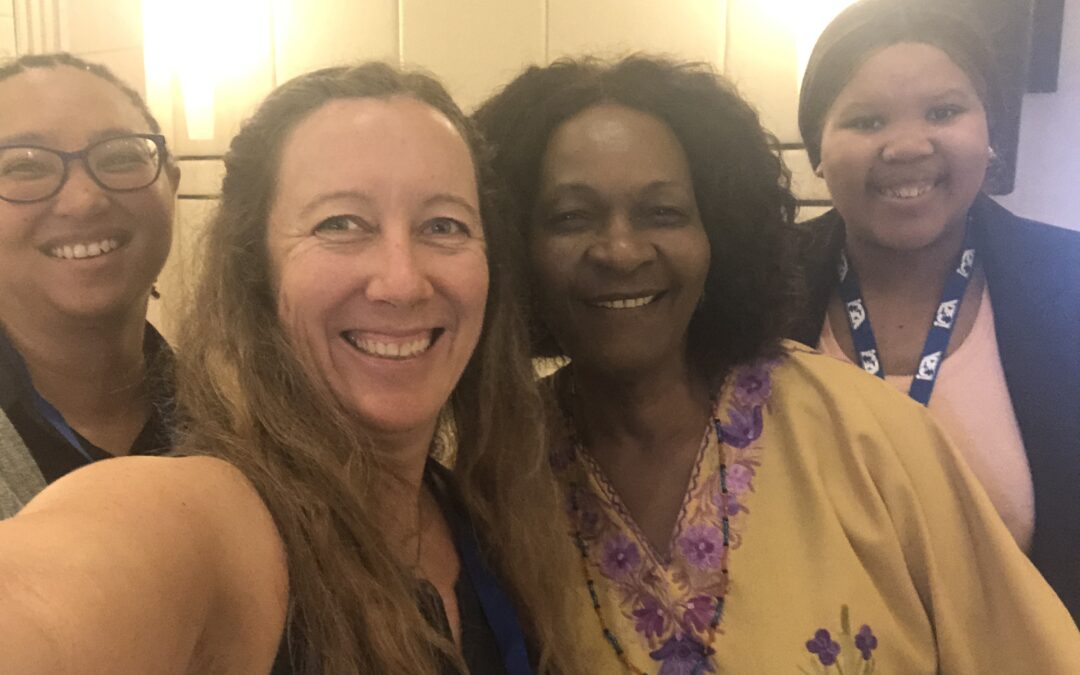
by Ria Olivier | Aug 9, 2023 | Commemorative Days, Important Dates, News, Research, SA Polar Research Infrastructure, SAPolarRI, SAPRI, Science, Southern Ocean, Women in Science
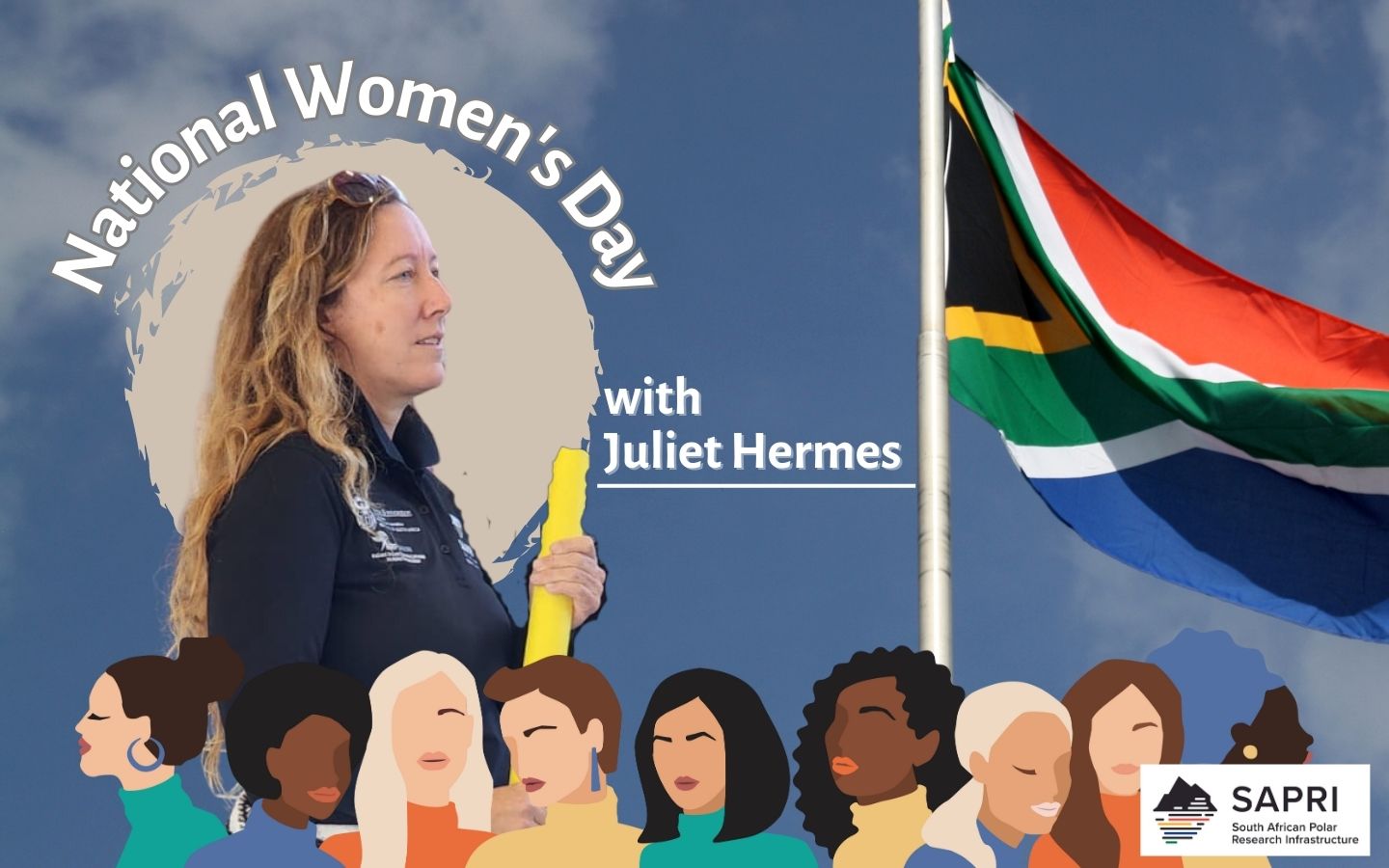
Prof Juliet Hermes is the Manager of the South African Polar Research Infrastructure (SAPRI), the Manager of the NRF- SAEON Egagasini Node, Honorary Professor at the Nelson Mandela University (NMU), Professor at the University of Cape Town (UCT) and heavily involved in a number of international programs and committees where she represent the fantastic work being done in South Africa and Africa as a whole (see list below). She is a passionate physical oceanographer who loves the ocean, a mom of two boys and her life is guided by the words of late Nelson Mandela:
“What counts in life is not the mere fact that you have lived. It is what difference we have made to the lives of others that will determine the significance of the life we lead.”
She makes a difference in her working environment through her collaborative nature and approachable demeanor.
“At the NRF- SAEON Egagasini Node I am supported by an incredible team consisting of biodiversity, modelling, observing and engagement specialists and of course administrative support. Together we advance our understanding of the marine offshore environment and our ability to detect, predict and react to global change through long term observations, modelling and research data”.
From Interim SAPRI Manager to SAPRI Manager
Juliet was initially involved in SAPRI as the South African Environmental Observation Network (SAEON) institutional champion and worked closely with Dr Tammy Morris and Prof Marcello Vichi in writing the original proposal and following business plan for SAPRI. As the manager of the NRF-SAEON Egagasini Node, which hosts the SAPRI LTO-Land and LTO-Ocean integrated facilities (IFs), she was made the interim manager of SAPRI in November 2021. Following discussions with the National Research Foundation (NRF), Department of Science and Innovation (DSI) and Department of Forestry, Fisheries and the Environment (DFFE) this role was then made permanent on the 1st of April 2023.
“It is a team effort with SAPRI and SAEON staff working closely together and the community also supporting us through the different user fora”.
Read more about the SAPRI IFs here.
Role of the SAPRI Manager
The role will change over time, the first 3 years will be overseeing the implementation of SAPRI – setting up the governance, employing the staff, overseeing the user fora groups, reporting to the advisory committees, the NRF and the DSI, working with DFFE, the South African National Antarctic Programme (SANAP) and the Antarctic Legacy of South Africa (ALSA) to integrate SAPRI and to maximize marine and polar sciences in South Africa. Understand the stakeholder needs and support the current community, whilst driving transformation and bringing in new stakeholders in terms of disciplines and institutes. A key aspect is also ensuring the sustainability of long term observations in the marine and polar space, and resolving long going issues between science and logistics.
Once the implementation has happened the role will be more in overseeing the operations, sourcing additional funding, driving transformation and continuing to work closely with DFFE and SANAP.
My expectations for SAPRI are for it to fulfill its vision: “to enable balanced and transformed research growth across the multiplicity of marine and polar disciplines, and to maintain and further expand the world-class, long-term observational research infrastructure and datasets already established within the South African marine and polar research environment.”
Juliet represent South Africa (and Africa) in the following international programs and committees:
- Ocean Decade task force to implement the Africa roadmap (read more here).
- Chair of the Climate and Ocean – Variability, Predictability, and Change (CLIVAR) Indian Ocean Regional Panel.
- Chair of the Indian Ocean Rim Association Academic Group (IORAG) and the node hosts the South African chapter for this.
- Ocean Decade working groups (on capacity development and adaptation).
- Executive committee member of International Association for the Physical Sciences of the Oceans (IAPSO).
- Vice chair on the Observation Coordination Group.
- Work closely with The Global Ocean Observing System for Africa (GOOS for AFRICA).
Read more: Second professorship for SAEON’s Juliet Hermes

Images and text supplied by Juliet Hermes.
Anche Louw, South African Polar Research Infrastructure, 09 August 2023.
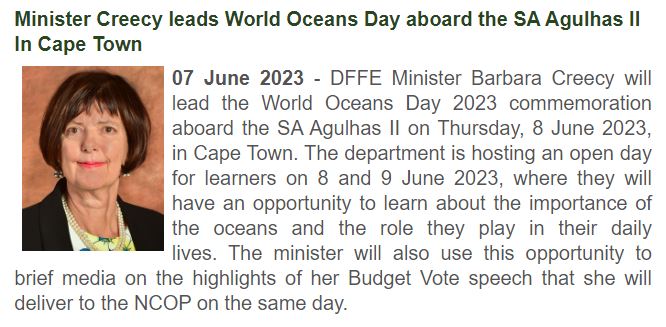
by Rabia Mathakutha | Jun 8, 2023 | Announcement, Antarctica, Commemorative Days, Current Event, Discover, Environment, Important Dates, International Days, Marine Protected Area, Oceanography, SA Agulhas II
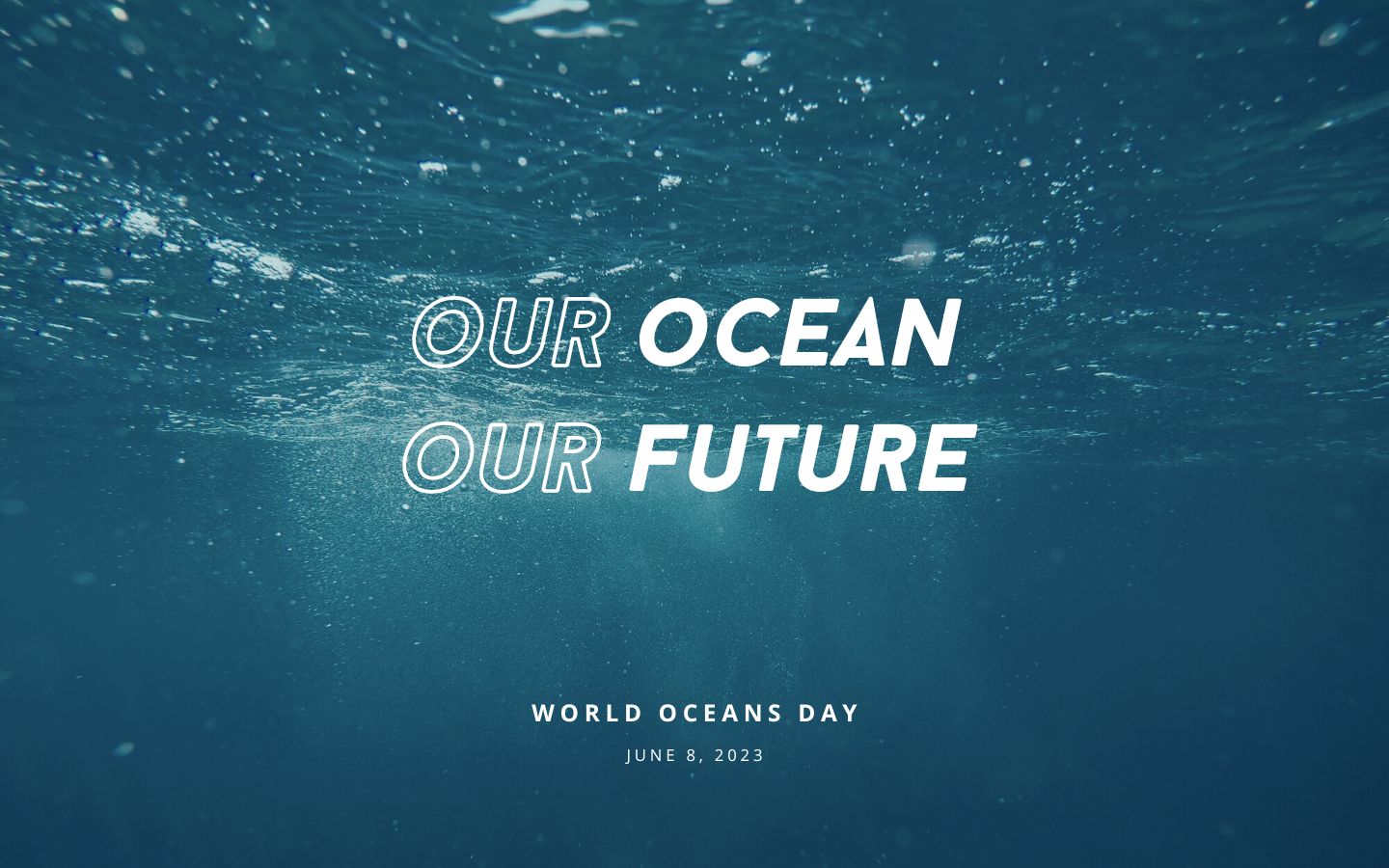
Preserving our precious marine ecosystems
Every year on the 8th of June, the world comes together to celebrate World Oceans Day, a global event dedicated to honouring and protecting our vast marine environments. This special day serves as a reminder of the significant role oceans play in sustaining life on Earth and the urgent need to conserve and restore their health. With over 70% of our planet covered by oceans, it is crucial to recognise the immense value they hold and take action to safeguard their future.
World Oceans Day is a day to appreciate the abundant biodiversity that thrives in these waters and reflect on the numerous benefits oceans provide, such as climate regulation, food security, and economic resources.
Event of interest on 8 June 2023
Significance of World Oceans Day
The delicate marine ecosystems face numerous threats, including pollution, overfishing, habitat destruction, and climate change. World Oceans Day emphasises the need to protect and restore these ecosystems through sustainable practices.
Promoting conservation efforts
What can you do?
Individuals can participate by organising or joining local beach cleanups, where they can help remove litter and prevent it from reaching the oceans. By minimising the use of single-use plastics and making environmentally conscious choices, individuals can also contribute to reducing pollution in our oceans.
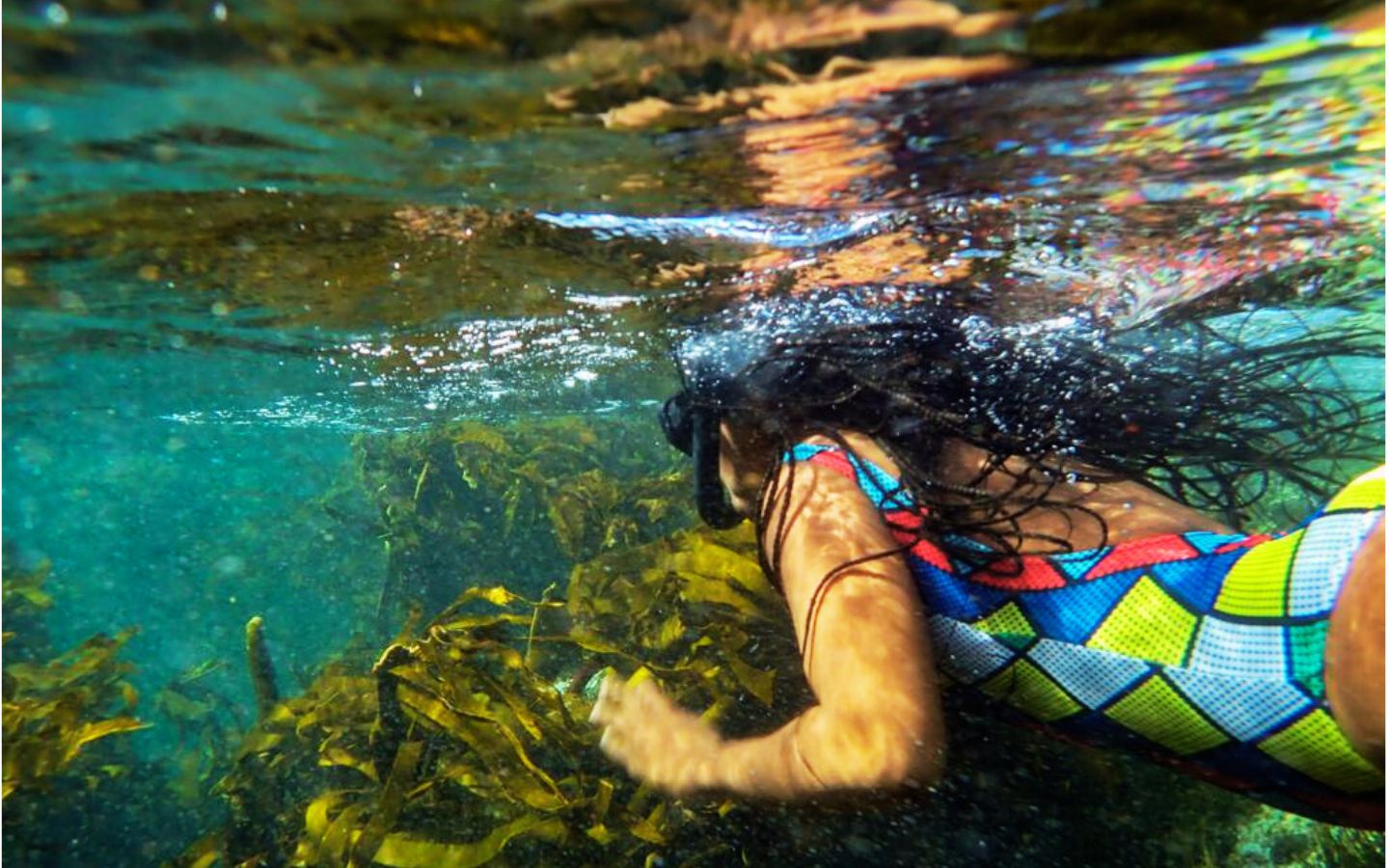
Recreational diving with a purpose. Cleaning the ocean one dive at a time. Image credit: Thando Mazomba.
Take-home message
World Oceans Day is an annual celebration that reminds us of the vital role oceans play in sustaining life on Earth. It urges us to recognise the urgent need to protect and restore marine ecosystems through sustainable practices, education, and policy changes. By coming together on this special day, we can create a collective voice for ocean conservation and work towards a future where our oceans thrive, benefiting both present and future generations. Let us celebrate World Oceans Day and commit to preserving the precious wonders of the deep blue.
On social media
Rabia Mathakutha & Anche Louw, South African Polar Research Infrastructure (SAPRI DPS Node), 08 June 2023

